Extract from The Guardian
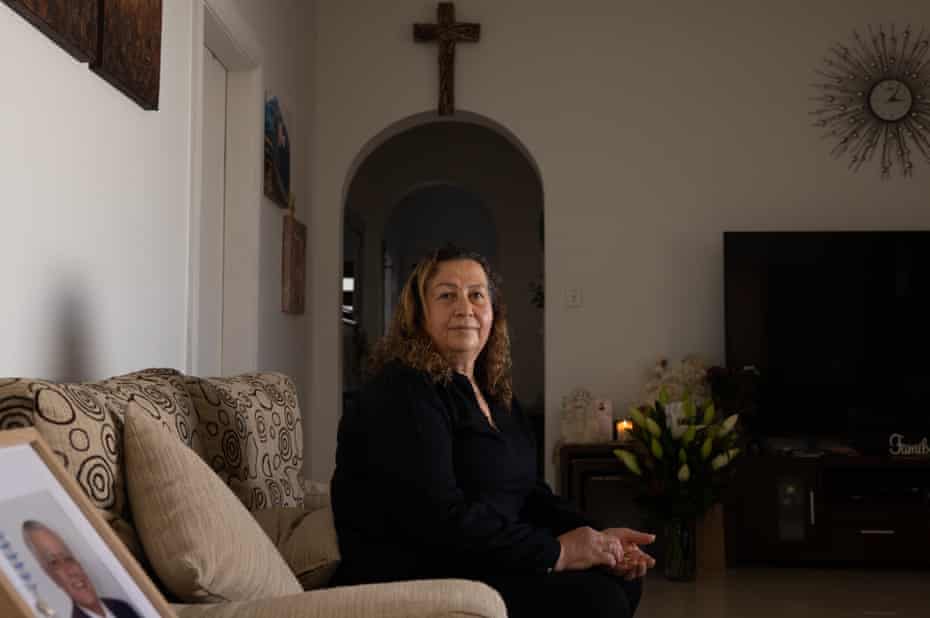
‘Only when you become one of those numbers, when you’re in it, do you realise how serious it is’
Last modified on Mon 4 Oct 2021 07.54 AEDT
Sayed Rizk sat still on his lounge, holding a mug between weak hands. His face was darkened and his tea untouched.
The 70-year-old had been awake since 3am that morning, unable to sleep through pain and discomfort.
When his wife, Najwa, woke to find him there, she called for her daughter.
“I told her, your dad is not OK. We need to take him to the hospital.”
After seven days of suffering Covid symptoms inside his home, Sayed’s family called for an ambulance.
Najwa and Sayed Rizk lived together in their home in Sydney’s West Ryde with their daughters Nicole and Souad. Last month, the family became sick with Covid and their beloved patriarch became one of more than 330 people in New South Wales to die during the latest outbreak.
“He used to say he wasn’t scared. I’m not going to die from Covid, he’d say. It’s not going to happen to me. And it did.”
‘It does not compare to your normal flu’
The family first felt unwell on Sunday 8 August.
She recalls the sudden onset of head and body aches. “Imagine the aftermath of being hit by a train. That’s how intense it was.”
Like her daughter, Najwa can’t forget the pain that hit her body. “At nighttime, you can’t sleep because of the pain. And during the day, you can never get comfortable.”
“You can’t do anything,” Najwa says. “We were barely eating. We had no taste, no smell, and a very, very heavy cough. I remember not being able to keep my eyes open.”
On the fourth day of symptoms, still bedridden herself, Najwa watched her husband’s condition worsen.
“He would try to get up from bed and fall,” she says. Weak on his legs, Sayed called for Nicole, who tried to pull him up. “But she was weak herself, and couldn’t do it.”
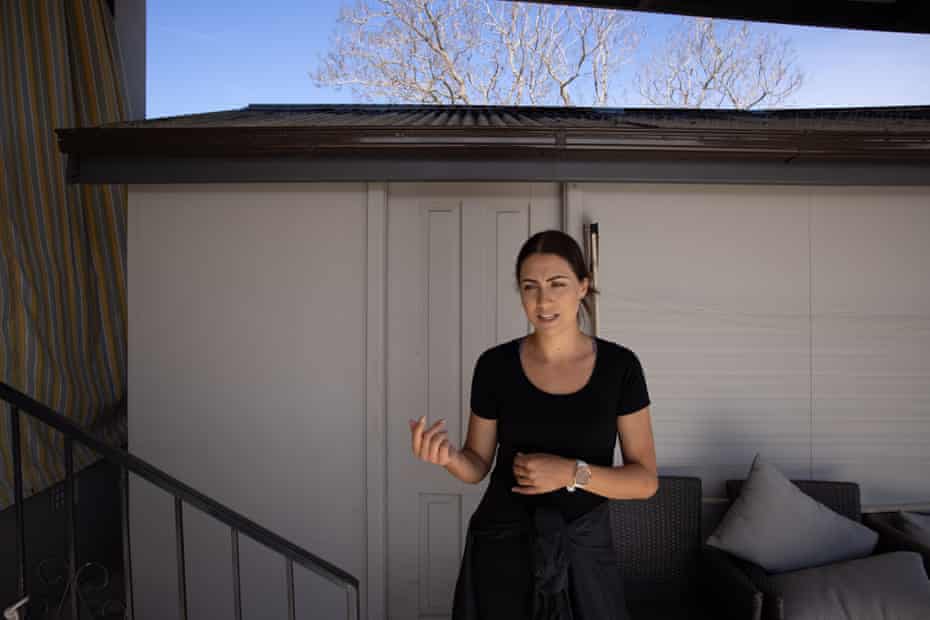
Though unable to stand, Sayed kept assuring his family he was fine. But Najwa’s concern only grew.
The next night, a violent cough kept Sayed from sleeping, and Najwa woke to find him in the lounge room.
“He had been up since 3am in the morning,” Najwa says. “He didn’t want to wake us up. He was worried we were all too sick as well.”
Nicole says her father’s face had turned an off, dark colour. “We knew we couldn’t keep him at home,” she says.
On 15 August, seven days after their initial onset of symptoms, Sayed was taken by ambulance to Ryde hospital in Sydney’s north-west.
‘We told him don’t panic, everything will be fine’
When he arrived at Ryde hospital, Nicole says there were no beds available. “He was left in a chair. After five hours, he was given a bed and the drip.”
Sayed was also given an oxygen mask to assist with breathing, and was started on a number of medications.
“Doctors would tell us he was stable, slightly improved, then slightly worse. Stable, slightly improved, much worse. With Covid there is nothing consistent. It was constant anxiety.”
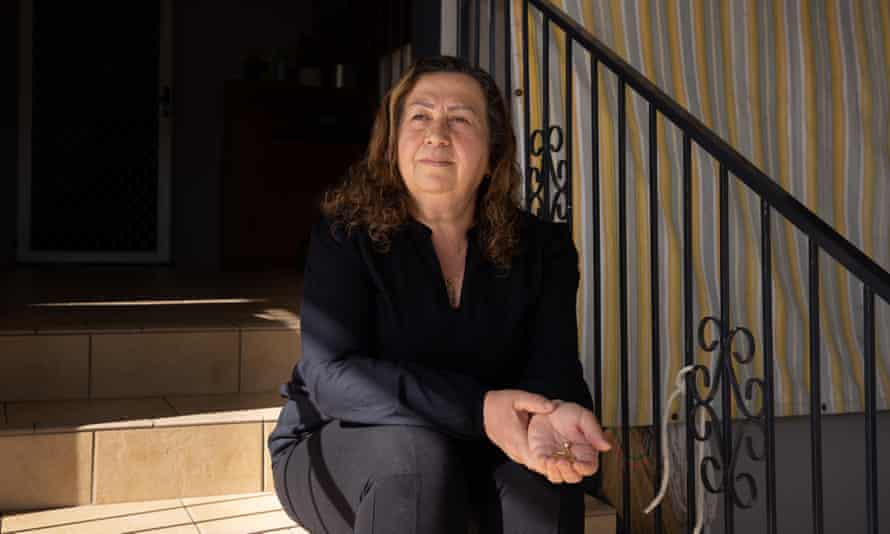
“My dad was still awake at this point,” Nicole says. “We called him. We told him, don’t worry. Don’t panic and everything will be fine.”
Sayed was then sedated, intubated and transferred to Hornsby hospital.
When Sayed’s family contacted Ryde hospital to retrieve his personal items, they were told the belongings were lost.
Among his clothes, wallet and mobile phone were a gold chain with a crucifix and a thin gold bracelet. Her father had been wearing the bracelet and chain “every day, for the last twenty years”.
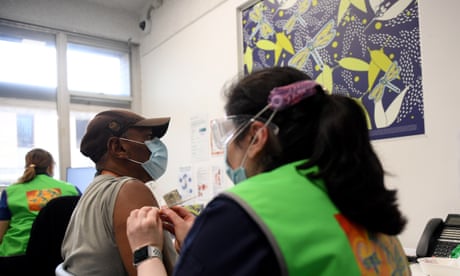
“They are more than sentimental. It is the worst feeling to not have that with us at this time.”
Nicole was sent an email by the hospital’s general manager three weeks later, apologising for the missing belongings and expressing disappointment that she was not informed sooner.
In a statement, a Northern Sydney local health district spokesperson reiterated that apology, saying they were sorry “for the additional distress caused by the loss of the patient’s personal belongings while he was under the care of Ryde hospital”.
The spokesperson also confirmed an “extensive search for the missing items was conducted by staff” and that the matter has been reported to NSW police and an insurance claim lodged.
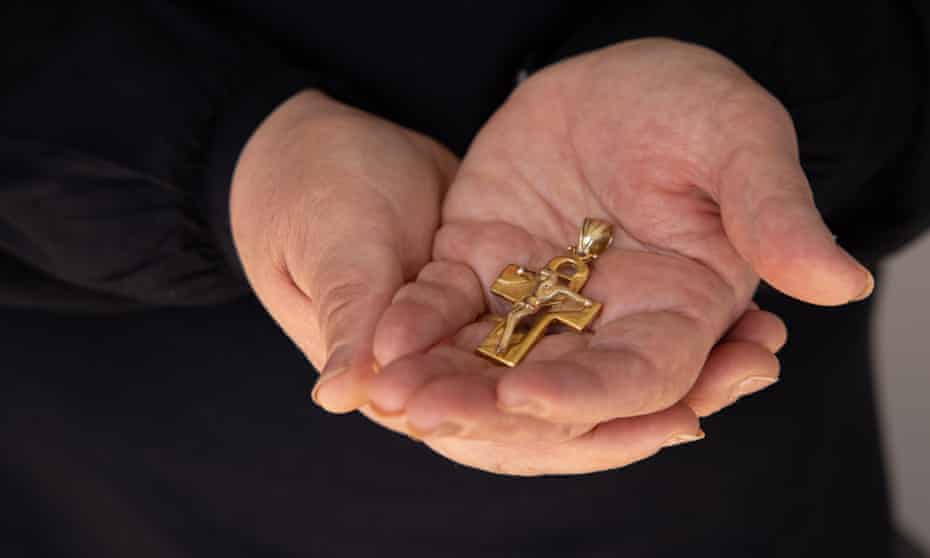
“Everything else is gone, but we have the crucifix, because it went with him to Hornsby by chance.”
‘We knew it was the last time we would see our dad alive’
Nicole says, from the very beginning, “there was no sense anything was going to work”.
Sayed’s family would call the hospital two to three times a day for an update. Nicole describes the anxiety of waiting for the call as “gruelling”, and says her mother was on edge the entire time.
“She was so anxious, crying for the entire two weeks,” Nicole says.
Najwa, Nicole and her sister Souad were eventually approved for a visit with Sayed in hospital.
Nicole says she “went in knowing it was the last time we would see our dad alive”.
“First the nurses and doctors put on their PPE. The gloves, the masks, everything. Then we went in. Dad was sedated. That was the hardest thing I’ve ever had to do, seeing him in that state.”
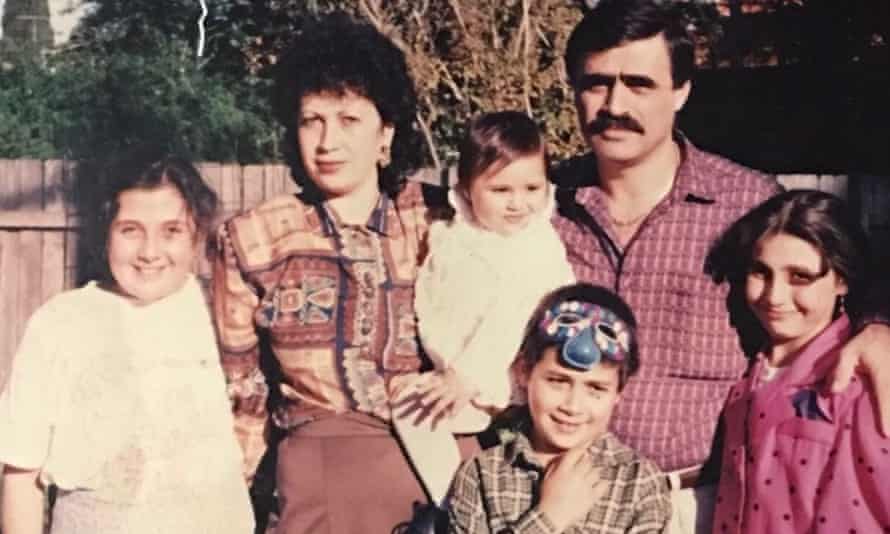
The nurse was empathic and understanding, letting the family extend their fifteen-minute visit to almost two hours.
Najwa describes not wanting to leave her husband in the hospital that afternoon. “Inside my mind, and my heart, I was not at peace”.
“I felt in my heart something was going to happen.”
At this point, Sayed’s blood oxygen levels were dropping dangerously low. The family were also told Sayed’s rheumatoid arthritis was an underlying condition to be wary of.
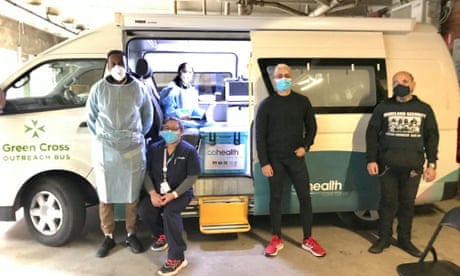
“We didn’t know arthritis had anything to do with Covid. But we were told the treatments weren’t working.”
Nicole, Souad and Najwa left Sayed at 3pm that day. That night, they fell asleep close to 11pm. Three hours later, at 2:27 in the morning on Thursday 2 September, the Rizk family house phone rang.
“We all got this sickening feeling in our guts,” Nicole says. “Our house phone never rings.”
Najwa says, “I felt the house collapse around me.”
A doctor from Hornsby hospital was calling to let them know Sayed had passed away minutes before. “He told us his organs shut down due to Covid pneumonia,” Nicole says.
“He said, ‘I’m sorry’. And that was it. We lost him.”
‘We became one of those numbers’
Before her family’s battle with Covid, Nicole “never in a million years” expected to contract the virus, let alone lose her father to it.
The family would listen to the daily acquired cases and death numbers. “We would hear that 12 people died and think gratefully, at least it’s not four hundred.”
Now, when Nicole looks at Covid numbers, she thinks instead of how many people went through the anxiety, the depression and the helplessness that her family went through.
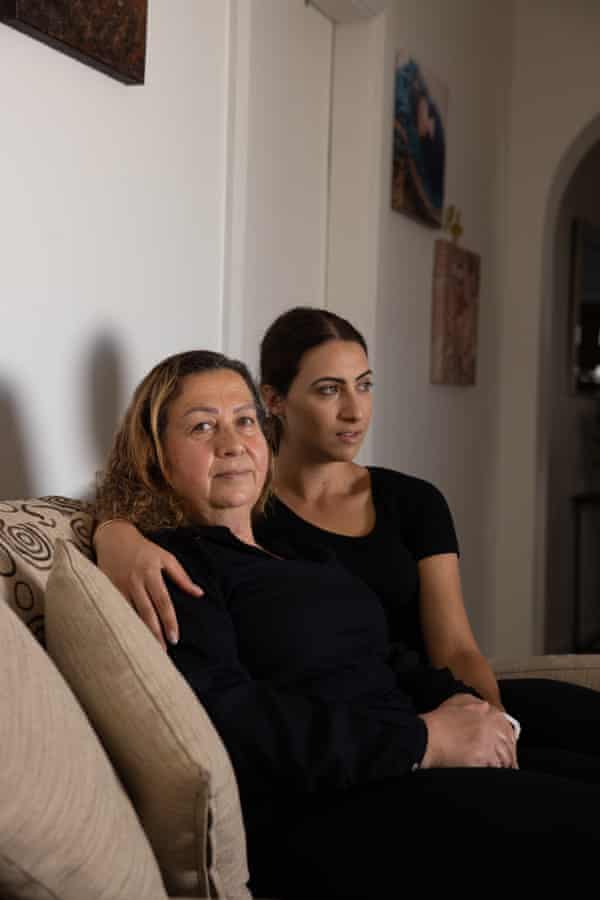
“The people who are dying are just being portrayed as a number, rather than real families being torn apart,” she says. “Only when you become one of those numbers, when you’re in it, do you realise how serious it is.”
Still housebound in Sydney’s extended lockdown, grieving the loss of Sayed has been especially difficult for the family, unable to access the support of extended family members and loved ones.
Najwa is grateful to be with her daughters, but knows things “won’t be like before”. She says her late husband was “very quiet, very helpful, and a very, very good man”.
“He loved everyone and he was loved by everyone. He did not deserve this.”
“It’s never going to be the same,” she says. “There’s something missing. Even when we sit at the table to eat dinner, it is different.”
Najwa says she “just wants families” like hers to “stay inside your house”.
“Wear your mask. Be considerate,” she urges. “If one person is sick, they can pass it on to a whole family. A whole family will be sick, and it could end just like it did for us.”
“I hope no one experiences what we experienced,” Najwa says. “No one in the world.”
No comments:
Post a Comment